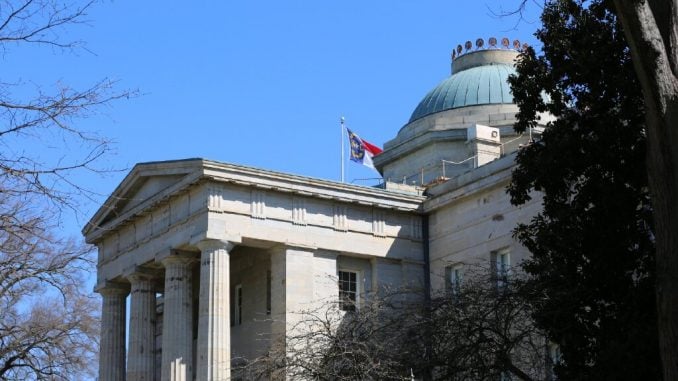
Individuals influence events and ideas. This statement seems obvious. But many people, whether the sentiment is spoken or not, believe that circumstances dictate every personal outcome. Circumstances are indeed powerful influences. Yet, individuals are not helpless.
During this 150th anniversary of the 1868 N.C. Constitution, I am reminded of three individuals: James Walker Hood (1831-1918), Abraham Galloway (1837 -1870) and Calvin Josiah Cowles (1821-1907). All three were state convention delegates. The body of 120 delegates elected Cowles president of the convention.
A Cumberland County delegate, J.W. Hood was born in Pennsylvania to a free black family. Although never an apprentice, he worked various odd jobs as a youngster. (He was once kidnapped, with the intent to be sold into slavery.)
In 1864, Hood traveled to North Carolina as a missionary. He was instrumental in increasing the growth of the American Methodist Episcopal Zion denomination. Later as a bishop, he traveled frequently and widely. He also helped establish what is now Livingstone College in Salisbury. Although now a separate institution, Hood Theological Seminary is named after the state constitutional convention delegate.
The missionary was politically active. As a delegate, he played an instrumental role in developing the homestead and public school provisions of the 1868 North Carolina Constitution. From 1868-71, he later served as assistant state superintendent of Public Schools and assistant superintendent of the North Carolina Freedmen’s Bureau. In 1872, the active Republican served as a national delegate to the party convention.
Of particular note, Hood promoted two social issues — temperance and equal treatment of races in public transportation. Before his arrival in North Carolina, for instance, the courageous 20-something was once kicked off a streetcar five times in one night — in New York City.
Born a slave, Abraham Galloway escaped to freedom in 1857. During the Civil War, he returned to North Carolina, but as a spy. During the war, he promoted equal suffrage and later served as an agent of the National Equal Rights League. While helping build the Republican Party in North Carolina, he was state constitutional convention delegate from New Hanover County. He later was later elected to serve two terms as a state senator.
Calvin Cowles was born into a Surry County small merchant family. Cowles had little formal schooling. A lifelong autodidact, he learned by reading, running his various businesses and from others’ guidance.
Cowles expanded his merchant business and started selling herbs such as sage to butchers, ginger to bee keepers and sassafras roots to Shakers in New York. What many deemed to be an ill-advised “risky business” turned out to be a successful one with a national network. According to one historian, Cowles built “the largest root and herb business south of the Potomac.”
Mining also interested Cowles. Before the war, he was a land speculator and learned what he could about mining. He promoted the western counties of North Carolina as potential mining sites.
As a Whig Unionist, Cowles opposed secession, in part because he feared, no doubt, that the conflict would disrupt negatively his businesses. Even so, during the Civil War he served as postmaster. Yet, he never took an oath of allegiance to the Confederacy. He was eventually removed from that position in 1863. He later signed the oath.
In 1868, he was elected as a Wilkes County delegate to the state constitutional convention and later its president. He later took the oath to the Union and tried to get pensions for Union veterans from Wilkes County. In the business sector, he later tried during the 1880s to “restore the South’s only mint.”
Cowles, Galloway and Hood helped form the 1868 N.C. Constitution. Until April 29, this important document is on display at the N.C. Museum of History for a rare viewing opportunity.



